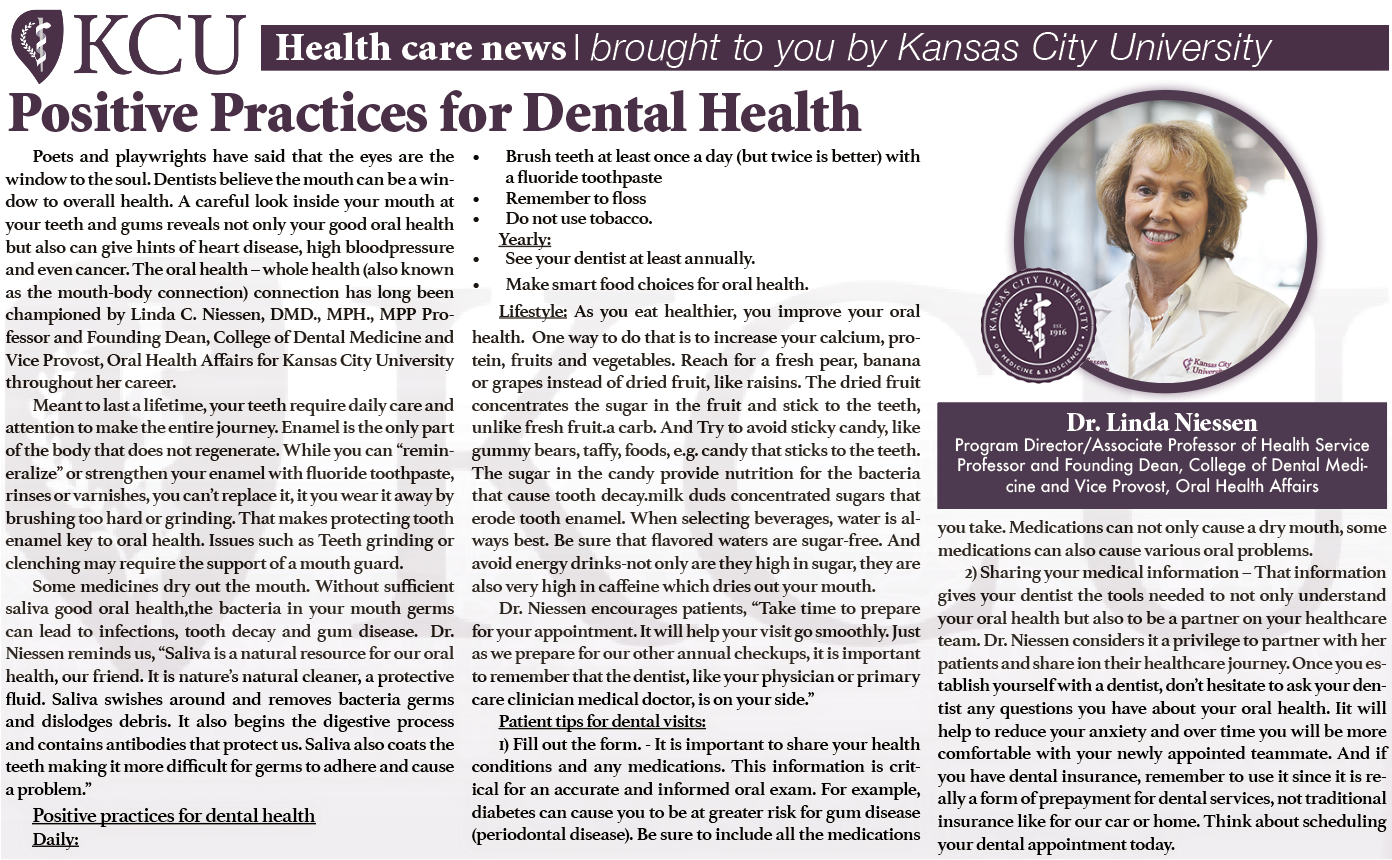Elizabeth Orosco
Northeast News
Kansas City Mayor Sly James is hosting a series of Town Hall meetings to discuss the proposed pre-K plan, which would implement a three-eighth cent sales tax for the next ten years to fund pre-K. This tax would generate roughly $30 million annually. These funds would be spent on tuition for instruction of four-year-olds, improvements to early childhood centers, and investments in the early childhood workforce.
Mayor James said it is the fierce urgency of now that Kansas City moves to implement this plan.
“There are too many children showing up on the steps of kindergarten, who aren’t kindergarten ready,” said James. “If train A leaves Kansas City at 10 o’clock at 50 miles an hour headed for Denver, and train B leaves Kansas city at 10:30 headed for Denver, when does train B catch up with Train A? The answer is never. What we are going to do and what we are going to talk about is changing the speed of this train of education in this city.”
There are approximately 6,750 four-year-olds in Kansas City, with only 34 percent of them being enrolled in high quality pre-K education. Another 38 percent are not enrolled in pre-K at all, and the remaining 28 percent are unknown.
Mayor James cites the lack of accessibility and affordability as core hurdles families in Kansas City must cross to enroll their children in pre-K. The average high-quality pre-K class for one child is about $12,000 annually. For many in Kansas City, this price tag is out of reach.
The plan would address these two issues, allowing families to qualify for tuition discounts. The less a family makes per year, the more discounts they would be eligible for.
To monitor quality, the plan would implement the Early Learning Program Profile, using the Classroom Assessment and Scoring System (CLASS) to evaluate classroom and teacher-child interactions that look at seven quality structure components so providers will be able to assess where they stand on the seven indicators.
In a Town Hall meeting held Tuesday, Feb. 5, 2019, one resident asked Mayor James if he considered investing in pre-K as economic development.
He said he absolutely believes it is economic development, as it prepares the workforce of the future, and gives children the opportunity to succeed.
“Starting at the beginning, with a foundation, like we build a big house. We go dig a hole and put a foundation and build up, but with our kids, we start at the first floor and build up and wonder why things get shaky. We have to change that model.”
James said investing in pre-K also gives children social-emotional intelligence that helps them solve conflict in the future, teaches children how to control emotions, set positive goals, and build and maintain positive relationships. He said children who develop social and emotional skills at a young age are less likely to act out, show aggression, become unfocused, and get involved in criminal activity.
According to recent statistics, 85-percent of all juveniles who come into contact with the juvenile court system are functionally illiterate. So are 60-percent of all prison inmates.
Inmates have a 16-percent chance of returning to prison if they receive literacy help, as opposed to 70-percent for those who receive no help. This equates, according to the study, to taxpayer costs of $25,000 per year per inmate and nearly double that amount for juvenile offenders (California & New York spend over $200,000 per year on juveniles in their juvenile justice systems).
“We know what we need to do, the difference is, are we going to have the political guts to do it,” asked James. “If you’re not going to help us with this, please do me a favor and don’t call my office talking about poor people, don’t call my office talking about people getting shot, and what I am supposed to do about it, because what we are supposed to do about it is give people opportunities and skills in life. This is what this is about, giving our kids the best opportunity for success that we possibly can. And if we don’t do it, that’s on us as the adults. The kids aren’t responsible.”
While many in the audience were for the proposed pre-K plan, many in the community do not support it, including the League of Women Voters (LWV), a nonpartisan political organization that encourages informed and active participation in government.
The LWV said they do not support the plan for several reasons: the regressive sales tax falls heavily on low and fixed-income people, the plan is unconstitutional and is in conflict with Missouri Constitution Article IX, appointed boards do not offer accountability, and the concern over a quality rating system.
The LWV held a panel discussion on the topic of the pre-K plan on Saturday, Feb. 9, 2019.
Dr. Maggie Holley, Early Childhood Program Coordinator at UMKC, said when discussing early childhood education, the most important thing to talk about is quality. Missouri is one of the few states that does not have a Quality Rating System, which is a systemic approach to assess, improve, and communicate the level of quality in early and school-age care and education programs. Similar to rating systems for restaurants and hotels, QRS award quality ratings to early and school-age care and education programs that meet a set of defined program standards.
Dr. Holley said it is frustrating that Missouri does not have a standard to measure and judge the quality of a program. She outlined the Mid-America Regional Council has developed a rating system that she believes is fundamentally solid.
She spoke positively of the education set-up that they have arranged for these educational classrooms. In terms of the pre-K plan, she said there are still questions.
“Educationally, I believe they are very sound. I think there are still questions about how it will be checked” she said.
Dr. Daniel Clemens, Superintendent of the North Kansas City School District, said he was also opposed to the plan, for several reasons.
“When we started looking at the plan, we were extremely disappointed in the inefficiencies and duplication of services and the overall plan.”
Dr. Clemens said he tried to meet with the mayor, but said there was no willingness to collaborate with public schools. Of the fourteen public school districts within and surrounding Kansas City, all fourteen superintendents are opposed to the Mayor’s plan.
In an Aug. 15, 2018 statement from Kansas City Public Schools, the district said serious concerns and questions revolve around four main areas: the proposed governance structure fails to provide an adequate amount of authority to the public school systems predominantly responsible for providing pre-K programs, the proposed plan raises concerns around providing equitable funding for programs in economically challenged “pre-K deserts” that need more access to early childhood education, it’s unclear how the proposed plan will create a functional framework to measure outcomes at pre-k sites, and the proposed plan will funnel public money into private and parochial schools and will serve as a potential framework for implementing a voucher system in Kansas City, which will fragment the educational landscape in the city.
During the Town Hall meeting, Mayor James said the issue with the school districts is that “they want to control the money, they want to control the program, and they don’t want to share outside of public schools, and by doing that, they cannot reach all the kids in the City.”
James said he believes it’s about the districts not wanting to give up that control.
“Where does it talk about the kids? It talks about the money and having access and having to move from year to year and competition from other providers, but where does it say they are going to have a better outcome for kids? They are focused on the things they are focused on because they are in survival mode in some respects with money. I get it, but at the end of the day, if we want to focus on the kids, we can solve all these problems. We are talking about making sure every child has a place and we are willing to work with everyone, including the school districts, but they are not willing to work with anyone that is not a superintendent.”
“It’s not that we don’t believe in preschool, but we are concerned about some of the comments being made about universal preschool for all, or all students in Kansas City, this plan is not even close to being able to provide those types of services to the students in our city.”
Dr. Clemens says the plan is a complete duplication of services that are already provided within the school districts.
“We have directors of early childhood, we evaluate our teachers, we have standards that have been established for our local board of education, all of that is in place. Why would the mayor need to duplicate that,” asked Dr. Clemens.
He said there are major issues he is concerned with regarding this plan.
First, he said the local board of education would have to give up their authority with the portion of the pre-K students that receive these vouchers. Second, he said it is not constitutional. The Missouri Constitution Title IX indicates that money raised by sales tax cannot be spent on parochial private schools; some of this money is trying to be spent there. Third, he is concerned about the resources earned through the tax and how far the resources can go.
Dr. Clemens says he often hears the mayor say that the school district does not have a plan, and says he is right.
“We don’t have one plan. We have fourteen different plans. Each school district has a different plan on how we educate preschool students. Each school has to pick their priorities with their community. We can’t simply say that one plan is going to fit the 6,750 pre-k eligible students.”
During a recent Mayoral Candidate Forum held at Northeast High School, Jolie Justus, Councilwoman of the Fourth District received applause from the crowd when she addressed this topic.
“We must have quality early childcare and childhood education, and if we don’t do it, we are going to lose another generation of kids,” she said. “I’m willing to take a risk on this pre-k tax personally. I’m willing to pay it because right now I see it as something that’s a pilot project. It is ten years in length and I also see it as something that the State of Missouri is not going to do. I’m willing to take a risk with my own tax dollars, and that’s why I’m going to be voting yes on that.”
The pre-K plan will be placed before voters on the April 2nd ballot.
To learn more about the plan and to see a list of upcoming Town Hall meetings hosted by Mayor James, visit kcmayor.org/pre-k.



















